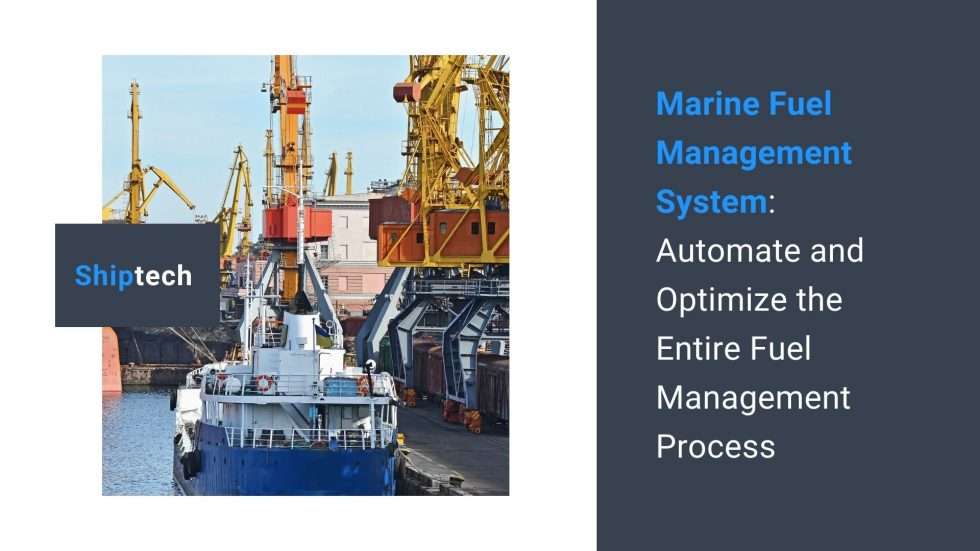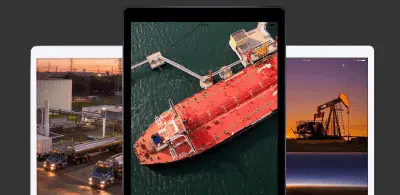Marine Fuel Management System: Automate and Optimize the Entire Fuel Management Process - Inatech
- February 9, 2022
- Posted by: Tom Hedge
- Blogs

The marine fuel market is witnessing complex changes owing to environmental regulations. For fleet operators, it has become quintessential to optimise their marine fuel procurement process whilst maintaining commercial profitability and environmental compliance. However, to enable effective transition you need to move beyond conventional bunker procurement processes, improve efficiency and get real-time insights to make the best purchasing decisions.
Let us understand more about the need for a smart, real-time fuel management system and how it can help transform your growth.
Green Fuels: A New Paradigm for Marine Industry
Shipping significantly contributes to the global economy by transporting around 80% of goods. However, it also accounts for up to 3% of the carbon-dioxide emissions. Although today’s fleet is majorly powered by crude oil-based fuels, the future is moving towards renewables or greener fuels that not only produce low or zero emissions, are affordable, fully compatible, easy to transport and store, and also generate enough power to support the shipping industry. These alternative fuels include hydrogen, methanol, biofuels, ammonia, and liquified natural gas.
That is why fleet operators are focusing on effectively transitioning to cleaner and greener alternative fuels. This underlines the importance of a powerful fuel management system that help you profitably transform your bunker procurement operations.
Let us dive deeper.
What Is a Fuel Management System?
A fuel management system includes a range of integrated software applications used by ship operators to streamline and automate fuel purchasing processes including procurement, contract and invoice management, planning and negotiations, financial accounting, claims and reconciliation.
If you wish to secure the best deals by making rapid, data-driven decisions, then a fuel management system is the right choice for you. It eliminates the need for the manual, mundane tasks of spreadsheets or legacy systems across multiple departments and processes to pave for a single integrated workflow.
Relying on less-efficient systems can lead to underutilization of capacity of vessels, bunkering more fuel than required, delayed requests to traders, or bunkering in ports where fule prices are comparatively higher.
How Does Fuel Management Systems Work?
Cloud-based, real-time fuel management systems help fleet operators eliminate subjective biases and man-made errors. Apart from automating and integrating all processes into a single workflow, it also
- Provides you with real-time insights
- Minimise operational and counterparty risks
- Equips you to make informed fuel purchasing decisions based on fuel price, quality, compatibility and availability, as well as
- Support spot and contract buying by handling different types of fuels, sludge, and additives.
Without a doubt, such decision support software systems offer more control and visibility and the opportunity to expand fuel management capabilities across the fleets, driving operational efficiency.
Why Do You Need a Fuel Management System?
Fuel management systems can help you focus on your bigger picture of strategic growth! A cloud-based fuel management system can help you with the following.
Transition to clean fuels
As you move towards decarbonisation, this technology can help you access energy parameters for profitable negotiations as well as evaluate the important energy parameters including calculated carbon aromaticity index (CCAI), price per energy and total cost of ownership (TCO), and best offer based on calorific value.
End-to-end automation
With seamless integration of a different number of applications, you can automate the whole RFQ process-from creating a request, to handling suppliers, negotiating, placing an order, and invoicing.
Spot and contract buying
This system handles multiple product types and new fuels including HSFO, LSFO, VLSFO (0.5 %), ULSFO (0.1 %), IFO, sludge and additives in a regulated market. You can view and manage vessel schedules, as well as record bunker delivery notes (BDN) and lab results against spec values. It also integrates with vessel management, laboratories, surveyors and accounting systems.
Contract management
Be on top of your deals by providing tailor-made contracts using comprehensive formulas and market instruments. Create and manage fixed and formula price term contracts using the price evaluation engine as well as plan contract purchases.
Counterparty and invoice management
Maintain a supplier directory that allows you to manage suppliers as well as benchmark them based on price and quality. Plus, it helps you initiate and track claims to resolution, and reconcile orders, deliveries and invoices.
Data-driven decisions
Manage onboard inventory, access complete, up-to-date data sets and ready-to-use reports and dashboards based on advanced analytics. Utilise reporting tools to ensure all decisions are based on verified data.
Better cash flow
Improve your purchasing power via historical transactions analysis and resolve disputes rapidly through effective claims management. Also, improve cash forecast and cash management with comprehensive financial accounting tools.
Regulatory compliance
Adopt best practice workflows and robust auditing systems to manage compliance and reduce operational errors.
Wondering how to select the best fuel management system for your business?
Inatech’s Shiptech is the customer-preferred fuel management system used by the biggest companies around the globe. Utilising our expertise and experience of working alongside both big and small fleet operators, Shiptech presents you with a complete, smart, cost-effective solution to your real-world problems.
To know more about Shiptech or book a demo, visit our product page


